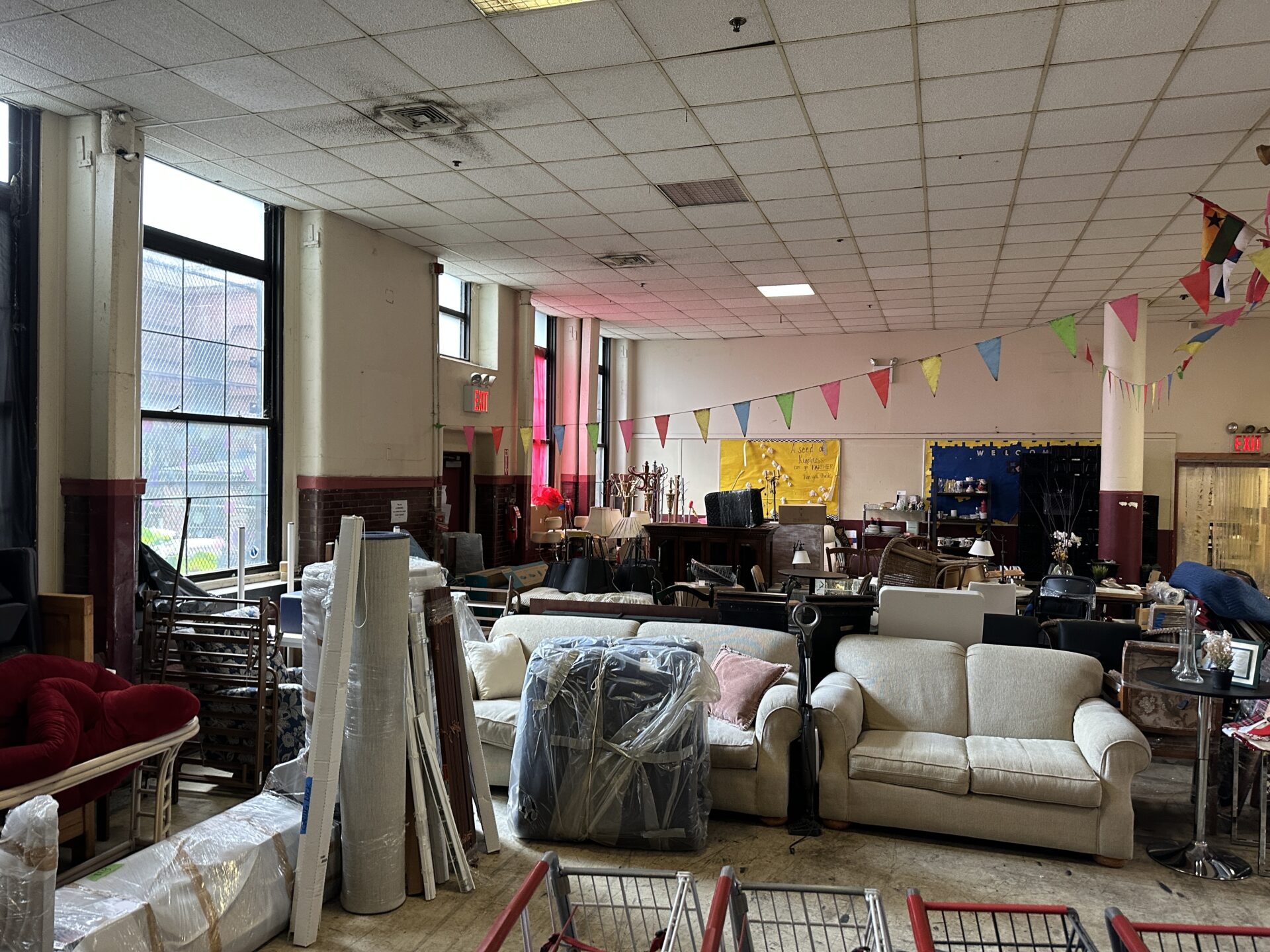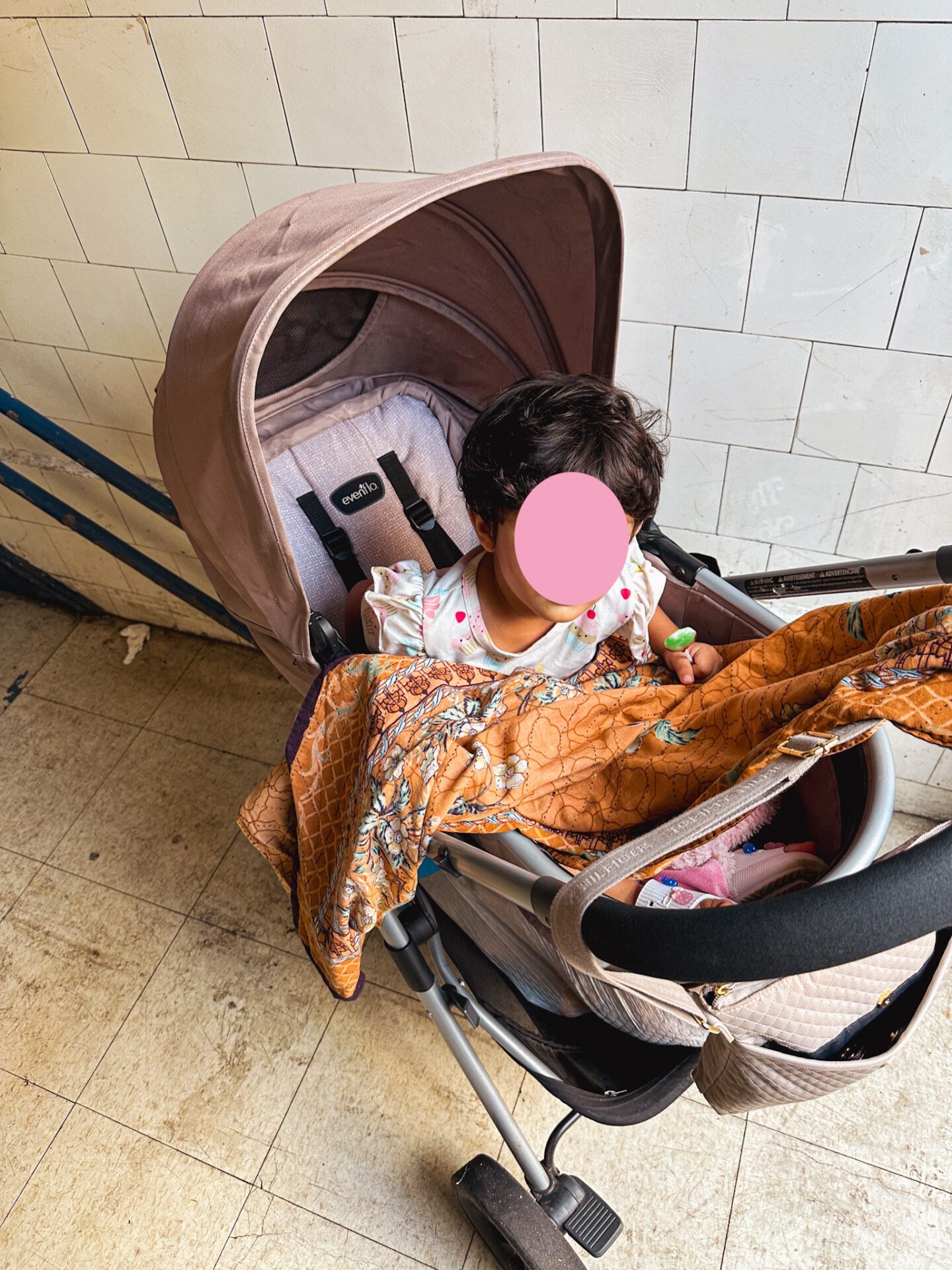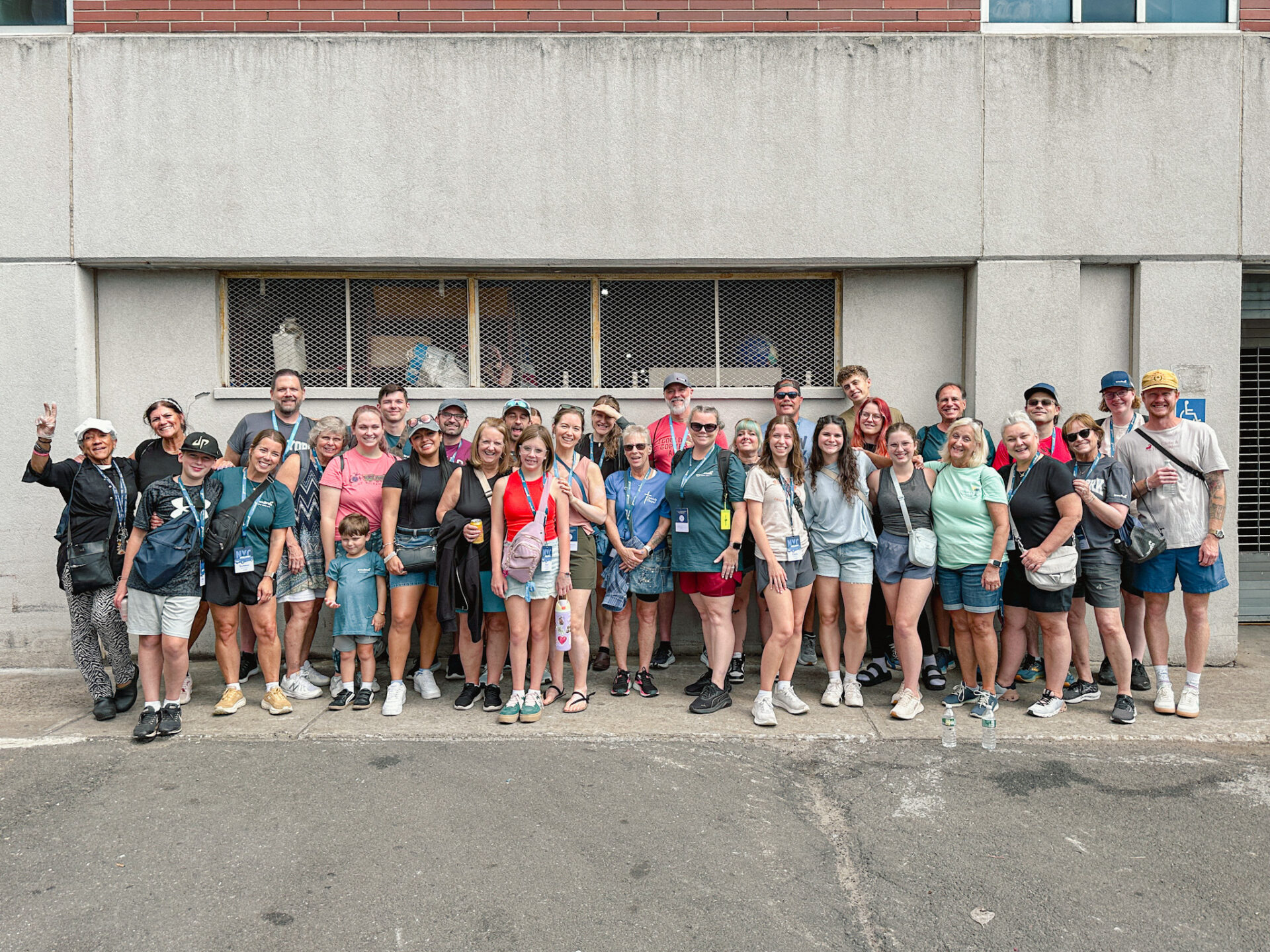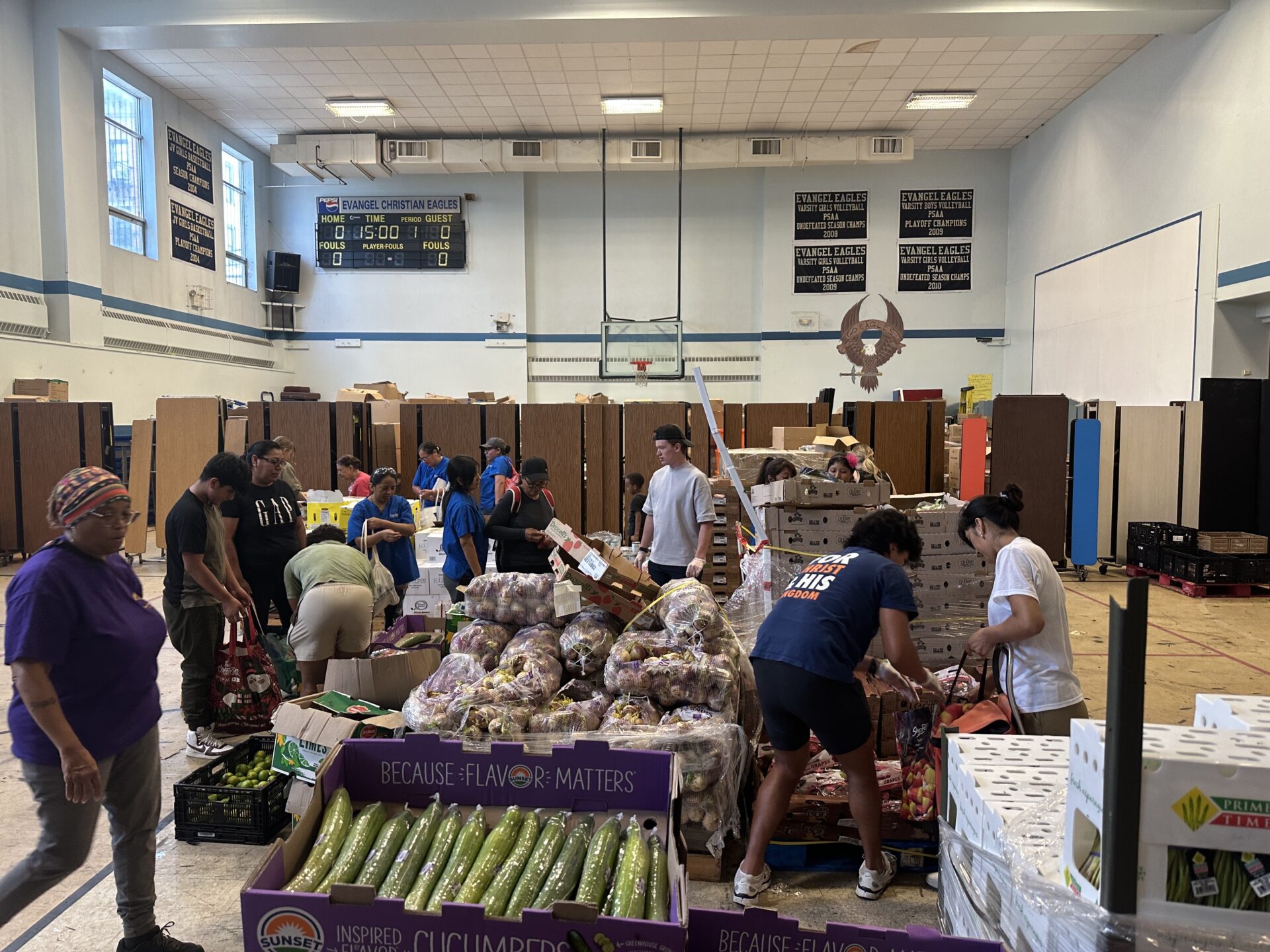One Onion At a Time
“For he himself is our peace, who has made us both one and has broken down in his flesh the dividing wall of hostility…” – Ephesians 2:14
More Than Just Food Distribution
9 Million Reasons is more than a food pantry — it’s a lifeline. Inside a transformed church gymnasium, volunteers distribute groceries to immigrant families navigating life in one of America’s most diverse and expensive cities. During our NYC mission trip with Spread Truth, teams served Tuesday through Friday (July 22–25), offering participants a meaningful opportunity to support this vital community resource.
The rules were simple: people could request as much as they wanted, but only volunteers could handle the items. One day, I stepped in to relieve another volunteer and found myself at the onion pallet.
A Simple Question, A Bridge Built
“Would you like some onions?” I asked a woman pushing a stroller with her young daughter inside. She nodded yes, and I asked, “Do you speak any Hindi?”
“A little,” she said in broken English, and when she shared that she was from Bangladesh, drawing from the few Bengali phrases I knew, I asked how she was doing.
Her face lit up with a big smile. And she responded, “I am doing good” in Bengali! “What do you call onions in Bengali?” I asked. “Pyaas! Same as Hindi! Bengalis love pyaas!”
Her guarded look softened as I loaded her bag with extra onions, and she left smiling with her daughter, Diya. What struck me most was the shift I witnessed, of how even a few shared words can break down guarded walls and build a bridge.
Showing Up Builds Trust
On our final day, I was helping with organizing projects when I spotted Sarmila by the entrance, Diya in her stroller. They had already gotten their food for the day, but Sarmila wanted to check the clothing and baby sections, which were on an elevated level accessed by a short set of stairs.
The only problem? She couldn’t manage the stroller and stairs alone. “What if I stay with Diya while you go look?” I offered. She hesitated but agreed.
When she returned, I asked about the baby formula she had wanted. Her face dimmed — they still didn’t have any, and she’d been told to come back later. But something in her expression told me there was more to the story. When I gently asked if everything was alright, tears slowly gathered in her eyes.

A Story of Displacement and Hope
Over the next fifteen minutes, Sarmila shared pieces of her journey that broke my heart and filled me with admiration. She and her husband had come to America three years ago with their two young daughters, seeking asylum and a chance at safety. In Bangladesh, their religious minority status had made life difficult. Now, in America, they faced a different kind of hostility—not religious, but cultural and systemic.
As someone who immigrated from India myself, I felt the weight of her experience. The hostility she described wasn’t unfamiliar, and I was struck by how displacement follows people across oceans and continents. Yet through all of this, despite feeling overlooked at times, Sarmila spoke of the future with remarkable positivity, which surprised me.

From Struggle to Sacred Ground
When I asked about the source of her hope, our conversation naturally shifted to a deeper ground. She had mentioned growing up Hindu, so I asked whether her childhood faith had been a positive or negative influence.
She said, “I don’t know if it was good or bad growing up, but now I can feel there is someone looking after us. Even in this new place, for three years now, how we are able to sustain and live — it has been a true blessing.”
This was my opening, not to pounce with a gospel pitch, but to share my own story. I told her about growing up visiting Hindu temples with my mother, about my questions about God, and the confusion I felt, and how my mother would tell me to stop asking questions and “just follow.”
Then I shared about coming to America for college and encountering a question from someone that changed everything: “What happens after death?” I explained how God used that simple question to radically transform my understanding of who He is and who I am through His Word.
But I also wanted to address the hostility she’d experienced. Drawing from Ephesians 2, I shared how the Bible teaches that Christ has broken down the dividing wall of hostility between people. In Him, we find unity that transcends race, nationality, social status, or economic position. God sees us as His children regardless of our faces, skin colors, countries, or clothes.
Before we parted, I gave her a Story Maker card with a QR code linking to a video that walks through God’s story of creation, fall, rescue, and restoration. I encouraged her to watch it at home with her family.
Seeds Planted in Sovereign Soil
Sarmila didn’t make a dramatic profession of faith that day. But she was attentive throughout our conversation, and I believe God had sovereignly orchestrated it all — from that first interaction over onions to this final gospel conversation.
What struck me most was the progression: a simple greeting in her language, consistency in showing up and caring, practical help with her stroller, and finally, the gift of being truly heard. By the time we talked about Christ, trust had been established. She felt safe enough to share her story, and I had earned the right to share mine.
The gospel speaks directly into every kind of exile. Whether fleeing religious persecution or facing quiet exclusion, we all know what division and alienation feel like. But Christ has broken down these walls, offering unity, belonging, and identity that no earthly system can provide or destroy.
Sometimes the gospel spreads one onion at a time.

